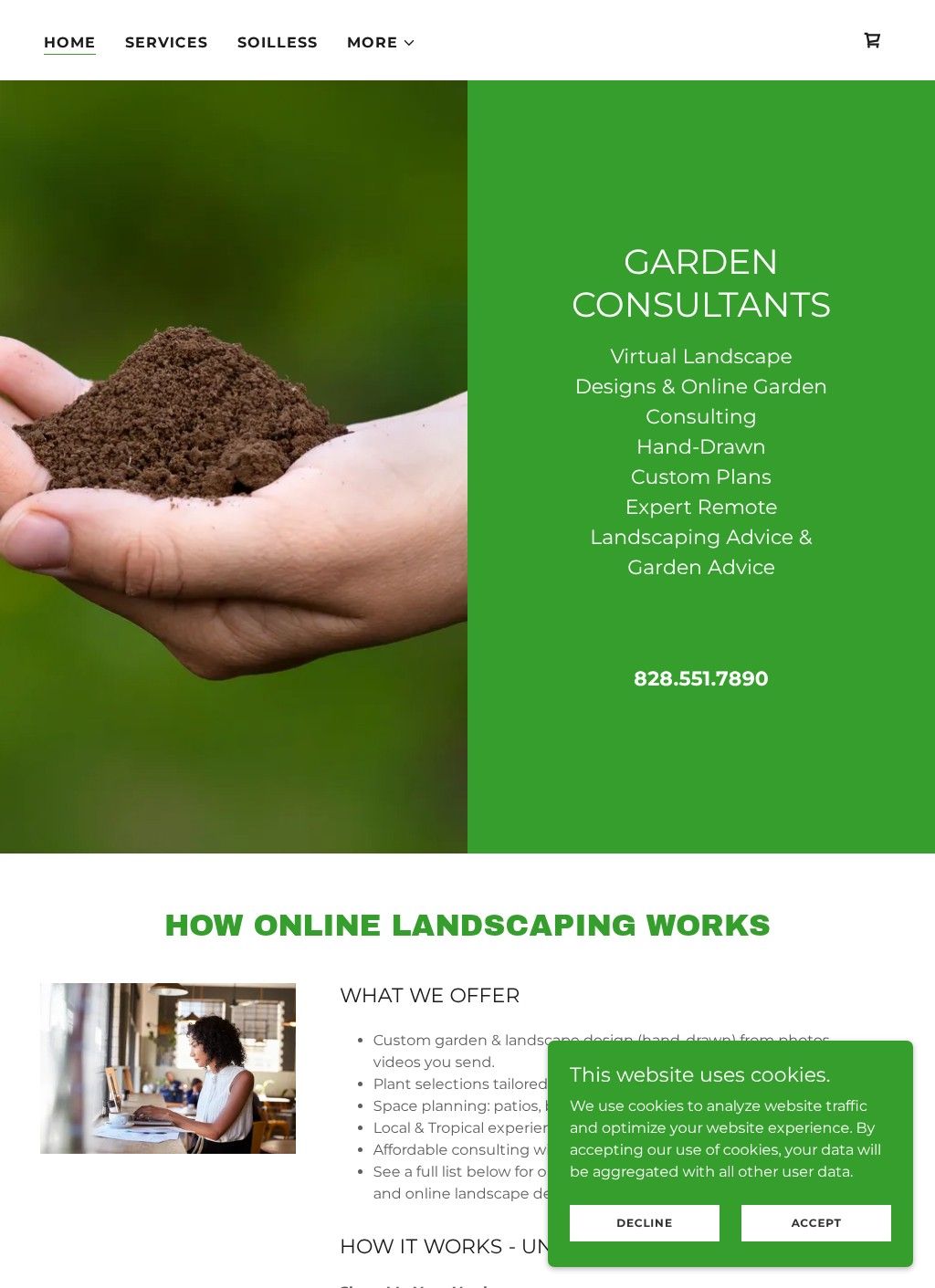Garden Consultants provides virtual landscape design services that bridge the gap between DIY landscaping and traditional on-site consultations. The company operates primarily from North Carolina but extends its services across the United States, excluding desert and arid climate regions. Their approach centers on creating customized landscape plans through remote collaboration, allowing homeowners to transform their outdoor spaces without the expense of full-service landscaping contractors.
The design process starts with homeowners documenting their property through video walkthroughs and photographs. Clients walk slowly through their front, side, and back yards while recording, capturing key areas they want improved from multiple angles. This initial documentation includes noting sun direction, shade patterns, soil conditions, slope issues, and drainage problems. Measurements of the yard and existing features like house walls, decks, patios, and trees form part of this preliminary assessment.
Climate considerations play a significant role in the planning phase. Clients provide their specific climate zone information along with details about local challenges such as deer pressure or water restrictions. This regional data ensures plant selections suit both the environmental conditions and practical constraints of each property. The company explicitly states they don't service desert or arid climates, focusing instead on regions where their plant knowledge and design expertise apply most effectively.
After reviewing submitted materials, the designer develops a rough drawing for client feedback. This initial sketch allows for adjustments and refinements before the final design takes shape. The finished product includes a colored layout plan with a comprehensive plant key identifying all recommended species. While these plans aren't drawn to scale, they provide clear visual guidance for implementation.
Plant selection reflects careful consideration of multiple factors beyond just aesthetic appeal. Each recommendation accounts for soil pH, climate compatibility, sun and shade requirements, and the overall design style requested by the client. This attention to horticultural detail helps ensure plants thrive once installed rather than struggling in unsuitable conditions. The service particularly benefits homeowners unfamiliar with plant requirements in their specific region.
The virtual design model offers distinct financial advantages over traditional landscape design services. Clients save money compared to hiring full-service landscapers who typically charge premium rates for on-site consultations and design work. The flexibility to implement plans at their own pace appeals to homeowners who prefer spreading project costs over time rather than committing to immediate full-scale installation.
Implementation flexibility represents another key benefit of the service. Homeowners can choose to install the landscape themselves using the plan as guidance or present it to local contractors for professional installation. This dual-path approach accommodates different skill levels and budgets. DIY enthusiasts appreciate having professional design guidance while maintaining control over the installation process and timeline.
Post-design support distinguishes this service from simple plan delivery operations. The designer remains available to answer questions both before and after clients receive their plans. This ongoing accessibility helps address unexpected challenges during implementation or clarifications about plant placement and care requirements. The commitment to continued support adds value beyond the initial design transaction.
All design plans arrive via email in scanned format, eliminating shipping delays and costs. Digital delivery also allows clients to easily share plans with contractors, print multiple copies, or store them electronically for future reference. This modern approach streamlines the design delivery process while reducing paper waste and logistical complications.
The consultation begins with discussing the client's vision, challenges, and style preferences. These conversations help establish design parameters and ensure the final plan aligns with both practical needs and aesthetic goals. Understanding what clients hope to achieve guides plant selection, hardscape recommendations, and overall layout decisions.
Free estimates based on submitted information and photos allow potential clients to understand costs before committing. Pricing varies depending on yard size and design complexity, providing transparency in what can sometimes be an opaque industry. This upfront pricing approach helps homeowners budget appropriately for both design services and eventual implementation.
The website's straightforward presentation emphasizes practical information over elaborate visuals. Content focuses on explaining the process clearly rather than showcasing extensive portfolio galleries. This functional approach may appeal to pragmatic homeowners more interested in understanding the service than browsing inspirational images.
Service limitations appear reasonable given the virtual nature of the consultation. Plans lack precise scaling, which might complicate material ordering or contractor estimates. The exclusion of desert and arid climates suggests specialized knowledge boundaries that the company honestly acknowledges rather than overextending into unfamiliar territory.
The business model addresses a genuine market need for affordable landscape design expertise. Many homeowners want professional guidance but can't justify the cost of traditional landscape architects or designers who charge substantial fees for on-site consultations. Virtual design fills this gap by providing expert input at a fraction of typical costs while still delivering actionable plans.
Communication methods remain primarily digital, from initial video submissions through email plan delivery. This tech-forward approach suits younger homeowners comfortable with virtual services but might challenge those preferring face-to-face interactions. The absence of phone consultation options or video calls during the design process represents a potential limitation for some clients seeking more personal connection with their designer.






Business address
Garden Consultants
BURNSVILLE,
North Carolina
28714
United States
Contact details
Phone: 8285517890
